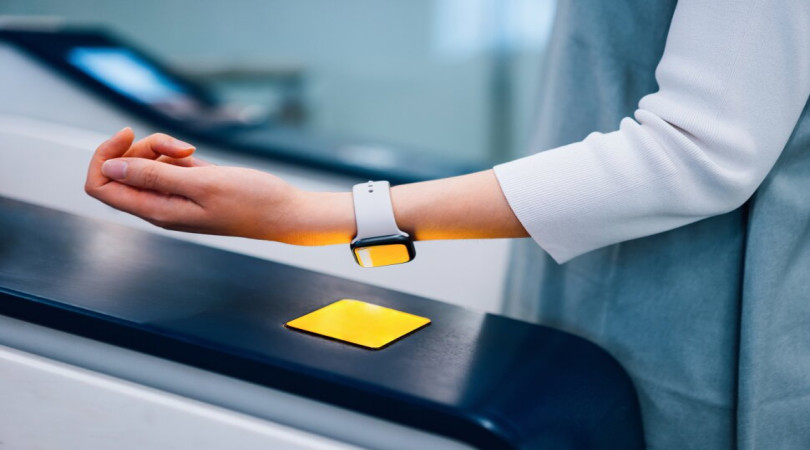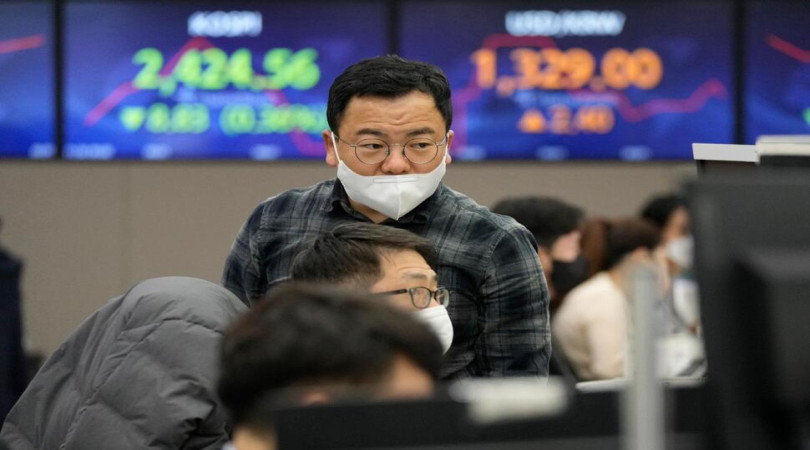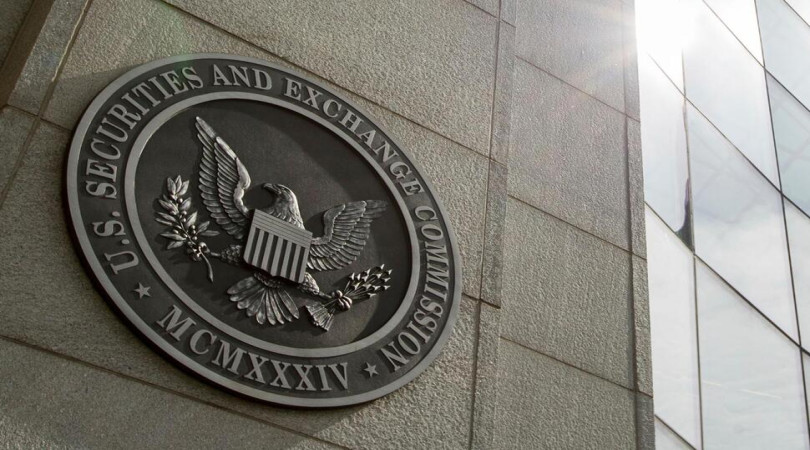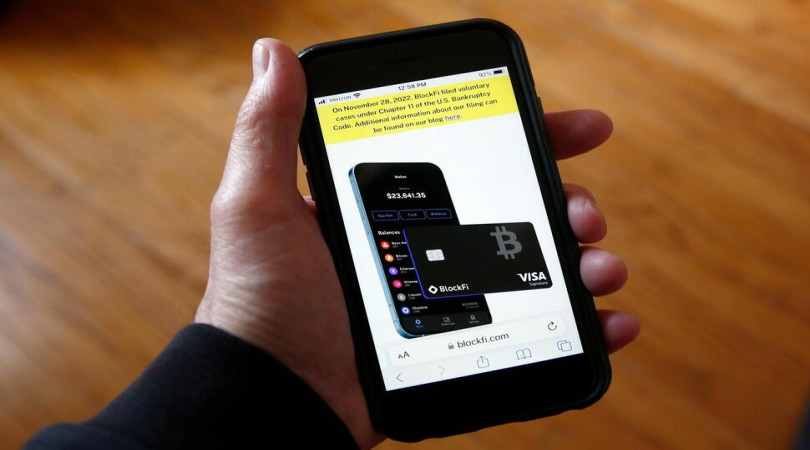It is a thought that has probably hit a lot of people of a certain age when making a purchase these days: “Wow, when I was a kid, I wouldn’t have ever imagined paying for something with my phone.”
It can make anyone wonder what the future of money will look like. If you grew up in the 20th century, pop culture suggested we’d be in flying cars and wearing some funky looking clothing. You probably didn’t see, however, a lot of references to cryptocurrency. And buying now and paying later was what you did with a credit card or layaway, but there was no buy now pay later installment plan.
So, what will the future of money look like? Without a time machine, there’s no way to tell for sure. But we did consult some financial experts to see if they could hazard any guesses – we got some pretty safe guesses and a few kind of wild ones.
Paper Money Is a Goner
Eventually. Maybe.
“Paper cash will continue to disappear, and digital forms of money will be prevalent,” says Cristiano Bellavitis,” assistant professor of entrepreneurship at Syracuse University.
Paper money’s demise has been predicted for awhile. In the 1990s, as debit cards and then the internet became a thing, a lot of newspapers were predicting the end of paper money. But, still, paper money and coins do endure, so who's really to say if they'll ever truly completely vanish?
You Will Pay for Things Using Your Body Parts
You think paying for stuff with your phone is surreal? That’s nothing. Kid’s stuff.
“We already transitioned from cash to credit cards and now to mobile phones or smart watches. The future, which is already appearing in China, is to pay with our bodies. For example, via an eye or face recognition, or other implants in our body,” Bellavitis says.
Paying For Stuff Will Get Even Weirder Than That
Bellavitis thinks that in 10 or 20 years, as it becomes normal for eye or facial recognition to trigger purchases, it will be merged with intuitive buying.
“Already, Amazon tries to make consumers' purchases seamless with auto-order. In the future, AI might predict your needs and buy things for you. And maybe you could purchase what you need just by thinking about it. Companies will try to leverage your impulse buys even more. We will move from ‘one-click buy’ to ‘no-click buy,’” Bellavitis says.
What could go wrong? Hopefully there's an age limit that comes with this type of technology. One can only imagine what will happen if a 2-year-old in a household can start making purchases by just thinking about it.
READ:
The Best Payment Apps.AI Will Help Us With Our Financial Decisions
AI is already helping plenty of people making financial decisions, such as with investing and managing their retirement. And it's just going to become even more prevalent in our lives.
Saeid Hejazi, CEO and co-founder of the personal finance app Wally and creator of WallyGPT, a GPT personal finance app, believes this – and given that his business model depends on AI, it’s natural that he would be assuming AI is in everybody's financial future.
That said, Hejazi makes a compelling argument why AI might supplant financial advisors someday, though we can assume human financial advisors would argue against that.
“Post the global financial crisis, we saw the emergence of various types of financial technology services that helped the masses understand their finances, pay off their debt, increase their savings and start investing. However, even those services lacked intelligence, personalization and context. Even with these services, human advisors continued to beat fintech solutions,” Hejazi says.
But he believes that “with the advent of generative AI we are at the beginning of a monumental leap in how people learn about their finances, make plans and reach their goals in a hyperpersonalized, conversational format that goes beyond charts and graphs.”
Hejazi predicts that, provided American consumers become comfortable granting access to their financial data to AI, we’ll see artificial intelligence guiding us like never before. (As for becoming comfortable with handing over financial data to AI, Hejazi points out that that’s ‘something over 200 million Americans have already done through various financial services.)
Hejazi believes that in the next several years, you can expect such things to be routine with AI and money:
- AI will help users find ways to reduce their everyday spending to find more savings.
- AI will help with researching the costs and factors to achieving goals, such as getting out of debt and planning a wedding, and putting together a tailored and realistic plan based on the individuals' income, assets, liabilities and other factors.
- AI will guide and coach folks in putting together portfolios that balance risks, appetites and macro conditions.
Sounds great. Still, the components of money management that we all find difficult, like resisting the urge to buy wacky or offbeat stuff we don’t need and instead putting money away for emergencies and retirement – expect all of that to still be hard.
Expect to See More Alternative Currencies in the Future
In other words, despite all of the questions and concerns around them, cryptocurrencies aren’t going anywhere.
Moreover, there will be all sorts of alternative currencies that consumers are using to pay for goods and services in the future, according to Don Patterson, chief technology officer of Blockpliance, a company that specializes in risk assessment for cryptocurrency wallets. Patterson is also a tenured professor of computer science at Westmont College in Santa Barbara.
Alternative currencies are already happening, Patterson says: “If you look outside of the U.S. in particular, there is an ongoing diversification of individual wealth into combinations of fiat money, cryptocurrencies and private ‘currencies,’ like cellphone minutes.'”
(By fiat money, Patterson is referring to money printed by a country’s government.)
“We are going to go back to a pre-Civil War money situation where there isn't a unified currency. We will all be juggling everything from cryptocurrency to Starbucks points and we will exchange them on a backbone of Bitcoin. And just like then, the burden of validating money will be on the consumer,” Patterson says.
So the American dollar will disappear? No, Patterson doesn’t see that. “But it's going to have to compete against other alternative currencies that are more efficient in particular situations and that cryptocurrencies will become the de facto way of making exchanges between them,” he adds.
Climate Change – And Our Changing World – Will Change Our Money
Patterson thinks that worsening climate change and the political landscape is partially why alternative currencies will thrive.
“We face a lot of instability in the world from politics and climate change. In the face of instability, people hedge their bets,” Patterson says.
That’s where alternative currencies come in. “I would pin the rise of alternative currencies broadly to climate migration,” he says. “As people are forced to move, they will try and find ways of conducting business that works in a wide variety of contexts. The U.N. makes a prediction of (there being) 200 million people by 2050, so let's say in the next 25 years.”
Obviously, nobody knows how climate change and future instability will affect finances. Maybe nothing major will happen.
But it does make sense that as the world evolves, the way we spend money may evolve, too. It’s already happened, in kind of mind-blowing ways.
As Patterson says, we have been using alternative currencies for a while now: “Cryptocurrency is good for international money transfer and as a unit of account for other currencies, but it's easier to pay your babysitter with cash and cheaper to get coffee with Starbucks points.”
There May Be a Lot of Distrust With Money Down the Road
If you think about it, that sometimes has happened already, such as the failure of Silicon Valley Bank earlier this year. Any time there is a bank run, which is fortunately pretty rare, that involves a bunch of customers saying that they don't trust the financial institution to hold their money.
“The biggest problem with money is trust – trust in your financial provider, trust in the issuer of money, and trust in interacting with others around your money. There are many single points of failure and many people and organizations that seek to abuse your trust. This will only get worse with recent developments in AI,” says Lars Seier Christensen, co-founder of Saxo Bank and chairman of Concordium, a blockchain company based in Switzerland.
Because of that distrust, “there is a desperate need for anchoring all these uncertainties in a universe of immutable data, unquestionable proof of ownership, and seamless interaction,” he says.
He believes blockchain – the technology that powers most cryptocurrencies – will become more important than ever as our world, financial and otherwise, goes more and more digital.
Eventually, Stressing Over Money May Be a Thing of the Past
Let’s end on a happy note.
“I don't think anyone can make valid predictions on this, but with a futuristic hat on, I imagine that the integration between individuals and their assets will be functioning in ways that are unimaginable today,” Christensen says.
“I am a technology optimist and believe that we will eventually live in a world of great wealth and opportunity, with poverty largely eradicated, compared to today and where trivial things like paying for something or interacting in economic ways will be highly automated, immediately at hand, and appear almost as magic by today’s standards,” he adds.





